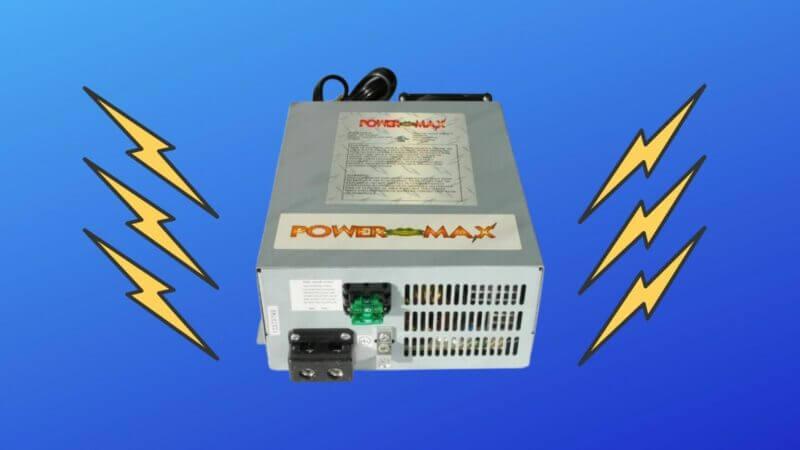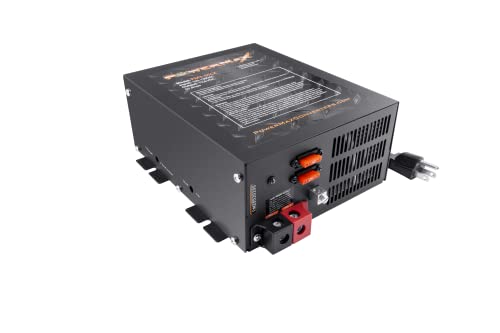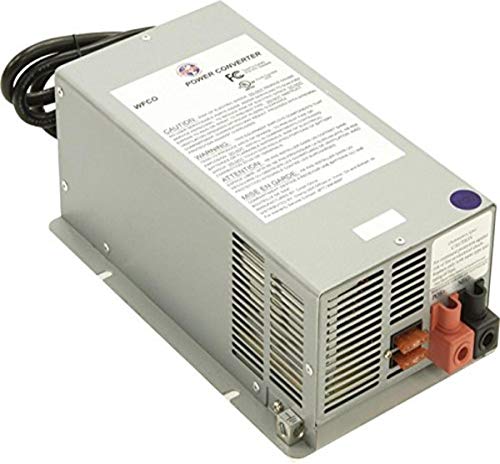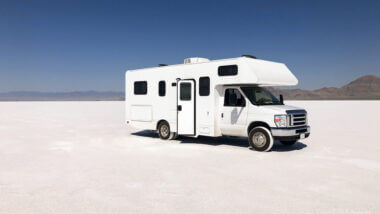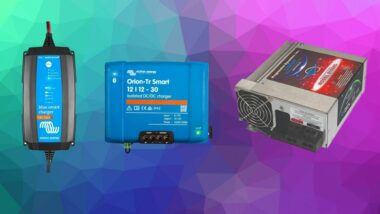Table of Contents Show
Electrical conveniences are all possible thanks to the RV converter, one of your electrical systems’ essential parts. It makes sure that no matter how you’re getting your power, all your systems work as expected. So how do RV power converters work, and which is best for your rig? Let’s take a look!
What Is an RV Converter?
An RV converter is part of your RV electrical system that converts AC electric sources into DC power in your rig.
What Does an RV Converter Do?
To understand what an RV converter is and how it works, you need to know a little about electricity. There are two types: alternating current (AC) and directional current (DC).
When you plug something in at home or connect your RV to shore power, you’re using AC power. Without shore power, you’ll run most of your electrical systems using the DC power from your rig’s batteries (with limited exceptions like your air conditioner–more on that later.)
This is where the need for a converter comes in. When you connect your RV to power, your electrical system feeds the 110 volt AC power to your converter, which turns it into 12V DC power. The 12V DC power charges your RV’s batteries, which run your lights and most other electrical systems (other than your air conditioner and a few others). Your converter can also pass along this converted 12V power directly to your RV’s systems.
What Is the Difference Between an RV Inverter and Converter?
As the names imply, RV inverters and converters operate on a similar principle but in different directions. RV converters take the 110V AC power and change it into 12V DC power. Inverters do the opposite–taking the 12V DC power stored in your RV house batteries and transforming it into 110V AC power.
How Long Do RV Power Converters Last?
Generally speaking, a properly manufactured converter should last for many years without any maintenance required. If your RV lights, fans, or other basic electrical systems aren’t working correctly, you may want to check out your converter to see whether it’s operating correctly.
How to Know What Size Converter You Need
Your rig needs an RV converter large enough to supply power to all your 12V systems. Find the amperage of each device you’ll use, which is usually printed on a small metal plate or sticker on the item. If you can’t find the information, try the owner’s manual or the internet. If your device only lists watts, you can divide this by 12 (the voltage used) to find the number of amps.
Add all the numbers together to find your maximum converter needs. Remember that your converter itself also uses some amperage, so add that too. Additionally, remember that you might not use all of these systems simultaneously, though many RVers prefer not to cut it too close power-wise, if possible.
Another consideration you must make is your battery type. Since the converter charges your batteries you must make sure that it can charge your battery correctly. If you have upgraded to lithium batteries, make sure that your converter is compatible.
The Best RV Power Converters
With all this in mind, we took a look at your RV converter options and rounded up our favorites.
PowerMax RV Power Converter
- Controlled, Quiet, Cool Operation - This converter operates quietly and reliably, ensuring excellent performance. It has...
- Wide voltage range - The PowerMax converter is a flexible power source suitable for various situations. It has a wide...
PowerMax is among the most popular manufacturers of RV power converters. This well-reviewed model supports 55 amps for $190 retail, though bigger and smaller amp capacity models are available from $129-$229.
Buyers love the ease of installing the converter and praise it for its quiet operation compared to factory standard models.
Progressive Dynamics RV Power Converter
- Includes built-in Charge Wizard.Fit Type: Universal Fit
- Reverse battery protection prevents damage from improper battery lead connection
This Progressive Dynamic model offers 60 amps of power for just under $220. Reviewers praised the converter for easy installation, which one described as “plug and play.”
It includes a built-in “Charge Wizard,” a device that the company says uses “intelligent charging” technology to adjust the output voltage and preserve your batteries. Progressive Dynamics claims it helps extend your battery life as much as two or three times.
WFCO RV Power Converter
- Quiet operation is assured as the cooling fan runs only when required by the electric load.Fit Type: Universal Fit
- Fully insulated DC connections are made for protection with an open-top design for ease of use for fast and nearly...
For the most affordable of our recommended models, you can purchase the WFCO RV converter for around $125. It supplies 55 amps of power, and WFCO boasts the device is FCC Class B compliant, which means it won’t interfere with TV, radio, or other wireless signals. Reviewers like the relatively quiet cooling fan and smooth set-up.
Which RV Converter Is Right for You?
Your RV converter is a little-known but critical part of keeping the lights on and your electrical systems running smoothly. Keep these tips and recommendations in mind when you’re buying or replacing your converter.
Last update on 2025-01-19 / Affiliate links / Images from Amazon Product Advertising API




